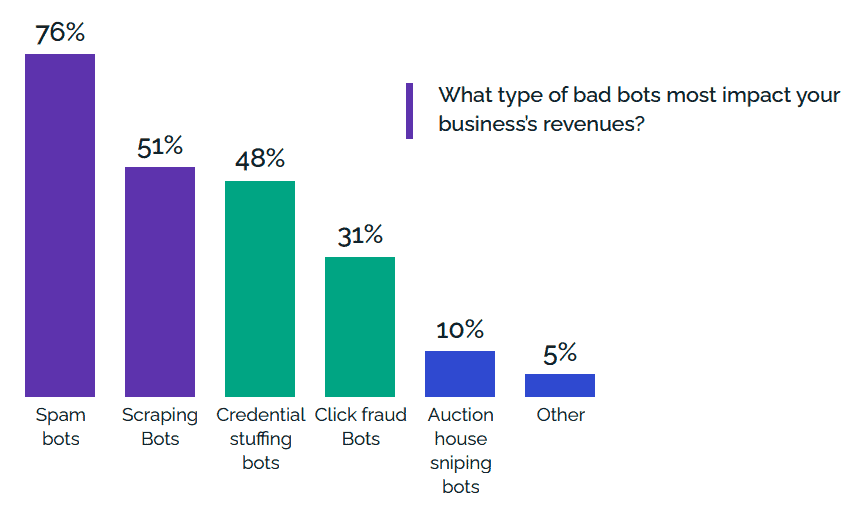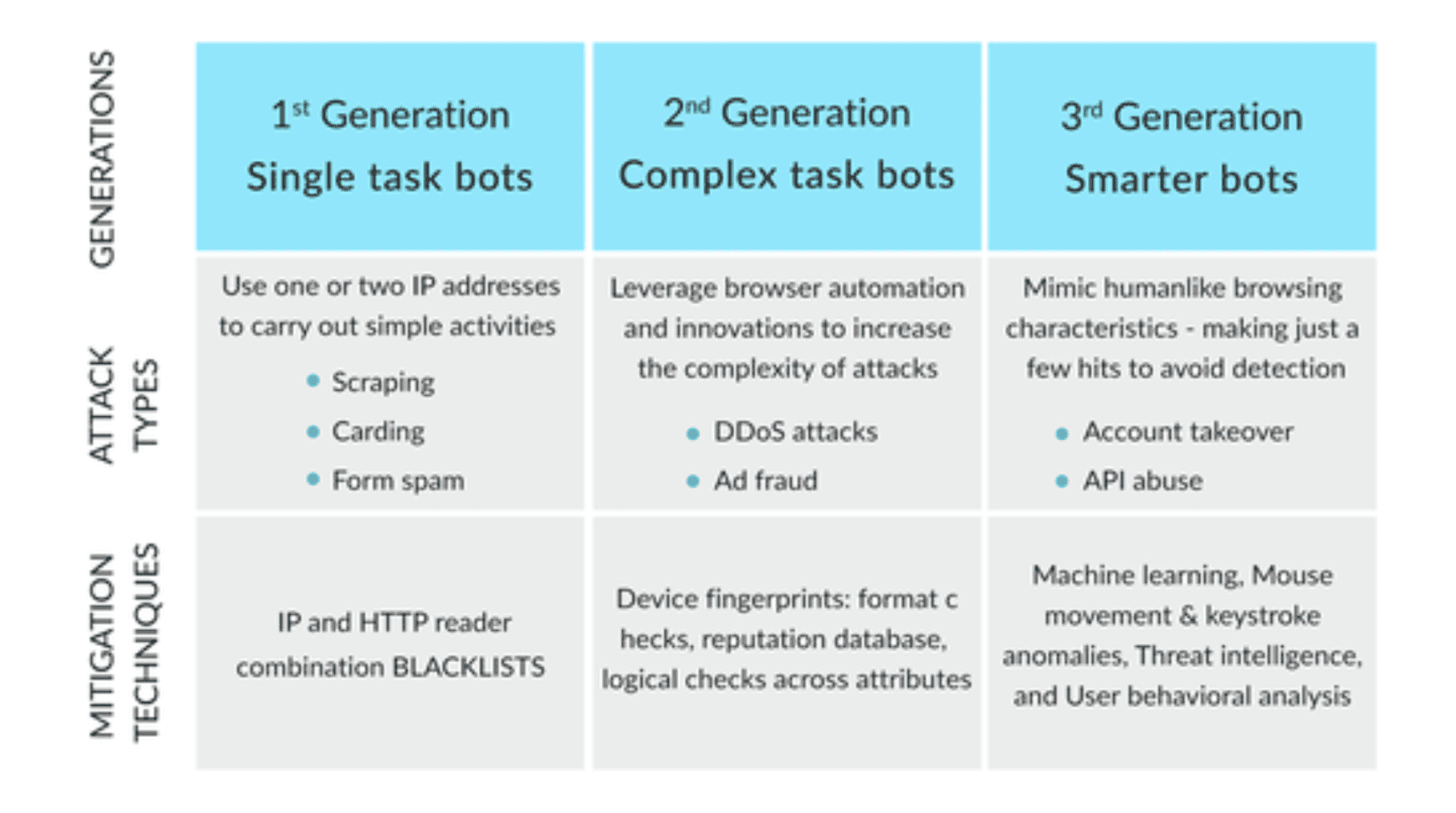As the world continues to move towards digitization, it is no surprise that online shopping has become a new norm. With the rise in digital-first online storefronts, ecommerce security is more important to consumers than ever before. Cybercriminals have their eyes on ecommerce websites, and individual consumer accounts, where valuable customer and financial information is stored.
eCommerce security is a crucial aspect of online businesses that enables secure and reliable transactions between customers and merchants. Cybercriminals often target ecommerce sites, which makes them vulnerable to numerous security threats such as data breaches, inventory sniping, and loss of customer trust.
Following ecommerce security basics helps online businesses earn their clients' trust and protect against malicious bots and other cyber threats. Therefore, it becomes important for online businesses to invest in ecommerce security measures to prevent potential threats, retain customer confidence, and safeguard their reputation.
Understanding the importance of ecommerce security
eCommerce security refers to the measures taken to secure online transactions and protect against data breaches, among other security threats. Implementing security protocols is crucial for online businesses as it builds trust with customers and ensures that sensitive information like sensitive personal data, including PII, and credit card information and other payment details are protected. eCommerce security also protects against fake account creation and inventory attacks, like inventory denial or sniping.
Prioritizing customer privacy and security is crucial for building trust and increasing sales. Customers are more likely to purchase from businesses that take measures to protect their information, making strong ecommerce security a differentiator for businesses. eCommerce security measures not only protect customer information but can also save businesses money, time, and reputation by preventing cybercrime and avoiding costly data breaches.
Types of ecommerce security threats
There are a variety of threats facing ecommerce businesses, and many of them are enabled by bad bots. Regardless of tactic, any successful cyberattack can cost businesses and damage their hard-earned brand reputation. Here are some common threats:
Account takeover and credential stuffing
Individual user accounts can be a treasure trove for cybercriminals. There is a multitude of valuable data within each account, including sensitive personal information and credit card information, among others. To gain unauthorized access to these accounts, attackers will often attempt account takeovers (ATOs) and credential stuffing. Credential stuffing involves using automated tools like bots to test login credentials stolen from other sources, like data breaches, to gain access to users' accounts.
DDoS attacks
eCommerce sites are popular due to their 24/7 availability and accessibility. As such, any downtime can mean a negatively impacted bottom line. This is why distributed denial of service, or DDoS, attacks can be so devastating for businesses. These attacks flood servers with requests and overload them, causing websites to crash and become inaccessible to customers. For ecommerce sites, DDoS attacks can disrupt website functions and ultimately impact sales. This not only hurts a business' bottom line, but its reputation as well.
Inventory sniping and inventory denial
One tactic they use is inventory sniping, where bots add popular items to their carts and hike up the prices, resulting in lost sales and negative reviews. Inventory dental, on the other hand, is when a cybercriminal places popular items in their online shopping cart, but doesn't check out. This ties up inventory and makes legitimate customers unable to complete their purchase.
bots play a key role in ecommerce attacks
Bots play a significant role in the attack model for ecommerce websites. Specifically, bots can be used to scrape websites for pricing and inventory data, allowing them to manipulate online store prices and inventory. Additionally, bots can be used to swipe up popular inventory items, like concert tickets, and sell them for higher prices.
Bots can also be used to launch attacks against ecommerce sites at scale. For instance, bots and botnets can be used for distributed denial of service attacks or credential stuffing attacks. Making matters more difficult for security teams is the increased use of cybercrime-as-a-service (CaaS) organizations. This means that would-be cybercriminals can purchase bots and other tools that are tailor made for specific purposes. This increases the population of attackers.
Best practices for ecommerce security
eCommerce security measures are critical for preventing security breaches, protecting customer data, and maintaining brand reputation. Consumers must be able to trust that their information is secure when they make transactions online. Implementing ecommerce cybersecurity measures saves businesses money, time, and energy in the long run by safeguarding customer information and preventing attacks. Here are some best practices that individual consumers and businesses can take:
- Encourage customers to use strong passwords and change them often
- Ensure secure hosting
- Keep security is current and patched, along with anti-malware software
- Use multi-factor authentication (MFA) or one-time passwords (OTP)
- Secure payment gateways and PCI DSS compliance (payment card industry data security standard)
How to mitigate the bot threat
As stated earlier, bots pose a serious threat to ecommerce businesses. As such, investing in a bot management solution may be one of the most impactful decisions an ecommerce business can take. For instance, bot detection can enable ecommerce security teams to gain a firm grasp on their incoming traffic while also understanding any potential vulnerabilities. Additionally, online traffic increases or anomalous traffic can be a precursor to a bot attack against a website.
Bot detection, however, is only half the battle. Any bot threats that are detected must then be mitigated. That said, not all bot mitigation tools are created equal. For instance, CAPTCHAs, or reCAPTCHAs, are often used by many businesses to both identify and then block bots and other suspicious traffic. However, many of today’s advanced bots are built with machine learning (ML) and AI and can bypass these traditional tools and conduct their attacks. Here are some of the advances in bot detection:
Arkose Labs secures ecommerce sites from cyber threats
Arkose Labs secures ecommerce websites from today’s cyber threats, including advanced bots. To stop bots, Arkose Labs provides MatchKey challenges, the strongest CAPTCHA ever made, that utilize variable challenges that hackers need to solve. This makes it incredibly difficult for cybercriminals to automate their attacks in an attempt to bypass these challenges.
Arkose Labs understands that cybercriminals commit their crimes for a financial incentive. If that economic incentive is no longer available cybercriminals will target another business. This is why Arkose Labs bot management is so effective. In order to bypass challenges, cybercriminals will need to pour more time and capital into their attack. Once they realize that these challenges cannot be solved cheaply by bot automation they will lose their financial driver. Better yet, legitimate customers will often receive no challenge at all.
Additionally, being able to make quick, efficient decisions is imperative in today’s cybersecurity landscape where malicious traffic filled with intelligent bots is wreaking havoc, yet many enterprises get little to no visibility out of limited signals with legacy solutions. Arkose Labs provides enterprises with increased visibility and actionable insights, including analysis of, and visibility on, human vs. bot traffic. Knowledge is power, and these insights provide enterprises with the information they need to win the battle against bad bots and keep legitimate users secure.
If you would like to learn how Arkose Labs can partner with your business to mitigate the bot threat, be sure to book a demo with us today.

